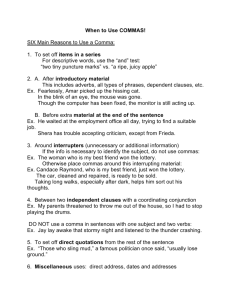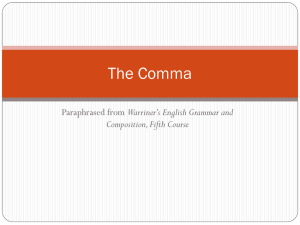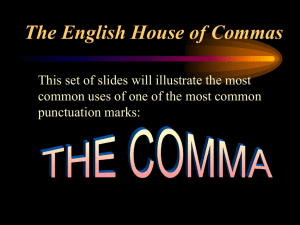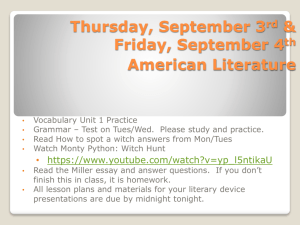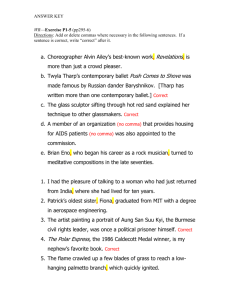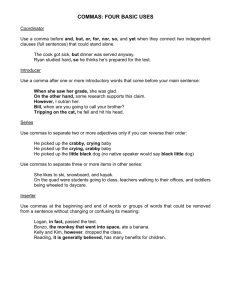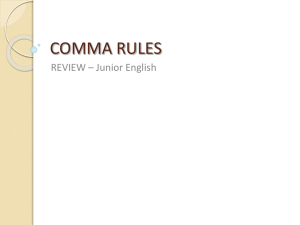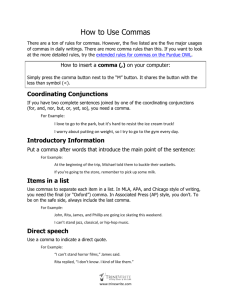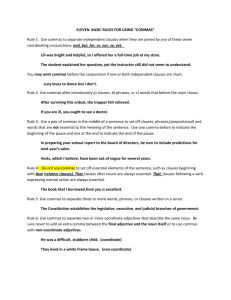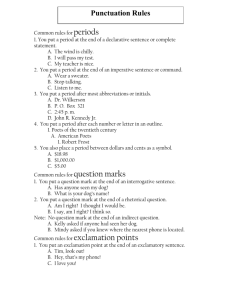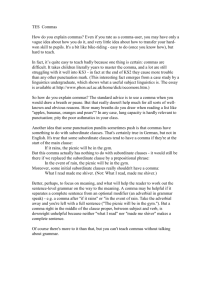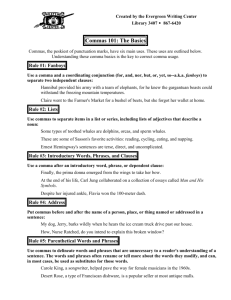Comma rules
advertisement
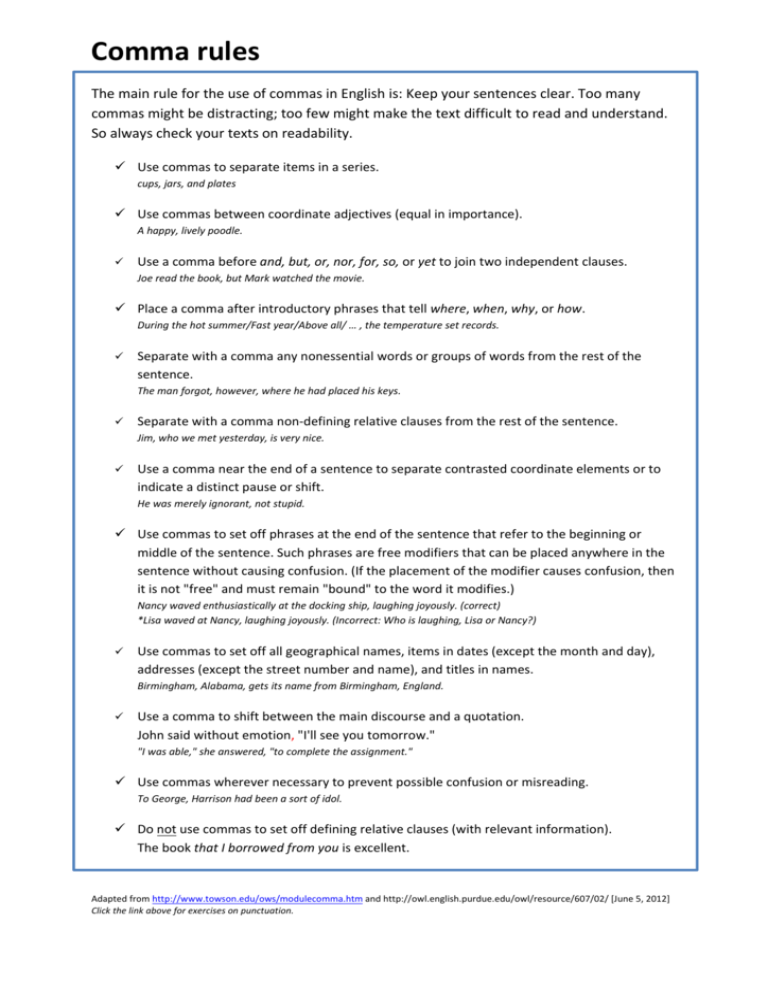
Comma rules The main rule for the use of commas in English is: Keep your sentences clear. Too many commas might be distracting; too few might make the text difficult to read and understand. So always check your texts on readability. Use commas to separate items in a series. cups, jars, and plates Use commas between coordinate adjectives (equal in importance). A happy, lively poodle. Use a comma before and, but, or, nor, for, so, or yet to join two independent clauses. Joe read the book, but Mark watched the movie. Place a comma after introductory phrases that tell where, when, why, or how. During the hot summer/Fast year/Above all/ … , the temperature set records. Separate with a comma any nonessential words or groups of words from the rest of the sentence. The man forgot, however, where he had placed his keys. Separate with a comma non‐defining relative clauses from the rest of the sentence. Jim, who we met yesterday, is very nice. Use a comma near the end of a sentence to separate contrasted coordinate elements or to indicate a distinct pause or shift. He was merely ignorant, not stupid. Use commas to set off phrases at the end of the sentence that refer to the beginning or middle of the sentence. Such phrases are free modifiers that can be placed anywhere in the sentence without causing confusion. (If the placement of the modifier causes confusion, then it is not "free" and must remain "bound" to the word it modifies.) Nancy waved enthusiastically at the docking ship, laughing joyously. (correct) *Lisa waved at Nancy, laughing joyously. (Incorrect: Who is laughing, Lisa or Nancy?) Use commas to set off all geographical names, items in dates (except the month and day), addresses (except the street number and name), and titles in names. Birmingham, Alabama, gets its name from Birmingham, England. Use a comma to shift between the main discourse and a quotation. John said without emotion, "I'll see you tomorrow." "I was able," she answered, "to complete the assignment." Use commas wherever necessary to prevent possible confusion or misreading. To George, Harrison had been a sort of idol. Do not use commas to set off defining relative clauses (with relevant information). The book that I borrowed from you is excellent. Adapted from http://www.towson.edu/ows/modulecomma.htm and http://owl.english.purdue.edu/owl/resource/607/02/ [June 5, 2012] Click the link above for exercises on punctuation.
